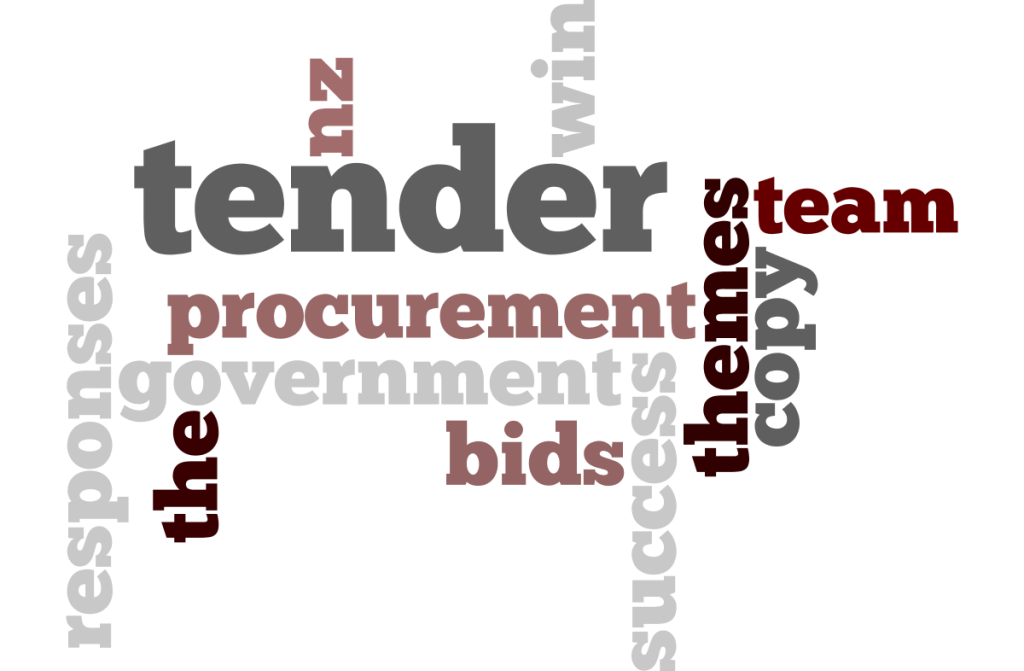Tenders In New Zealand
Does your company need to win more tenders in New Zealand?
Our team of tender and bid writers are ready to assist. We’re passionate about helping our clients win bids and tenders across New Zealand. Regardless of if you are based in New Zealand, Australia, or internationally, our team is well placed to help you win business.
We’ve helped businesses win tenders across New Zealand from the South Island to the North. Our team of writers have helped businesses in Wellington, Auckland, Christchurch and beyond win tenders and contracts by writing compelling proposals. This extends across the defence, construction, government, medical, trades and services industries.
With our head office in Australia and a small team of writers in New Zealand, we know how to write tenders that deliver results and differentiate your business from your competitors.
Our team know what it takes to write winning national and local government as well as private tenders. With a well refined tender methodology, and a strategic and commercial approach, we’ve got the ability to assist businesses to write winning bids and proposals in New Zealand across all industries.
There is a common misconception amongst companies looking to secure contracts in New Zealand that all that is required is to simply have strong relationships in place, and to fill in the necessary information. Unfortunately, it takes a lot more effort than that. You need to differentiate your bids from your competitors, through compelling language, tactful use of images and info-graphics, and innovative ways of providing evidence such as case studies and tables.
Focusing on being local
Another key point is that if you are bidding on behalf of an overseas company, it’s important to present a local front. You need to show a commitment to New Zealand including the economy and often the environment. For government contracts especially, a sound policy for employing locals and investing in communities is critical. Many questions in New Zealand tenders will enquire if the tenderer’s resources such as manpower and ‘content’ was sourced locally or from overseas. In these cases, it is not just enough for the tenderer to be a local but to operate their business in a manner that supports their fellow businesses (large or small) through procurement locally. In addition, many tenders (New Zealand government, especially) will ask for how the tenderer contributes not only their required services as expected by the contract but in other more voluntary ways for the community.
We always encourage our clients to spearhead or commit themselves to charitable causes and other initiatives that demonstrate a local connection greater than just a source of business. These activities are looked upon favourably and are specifically asked as a means to distinguish our client from the competition in a compelling manner. Our clients need to communicate their track record and provide personal insights into their personnel. Talk about how you can be trusted, understand the way things work, and are comfortable in adhering to local rules and regulations.
Prepare for your next tender
The tendering process starts well-before the tender or RFP is released. Some techniques we recommend and are able to guide you through in order to ensure you prepare for your next tender include:
- Establishing pre-tender relationships and contacts
If at all possible, tenderers should establish communication with relevant parties that may have prior experience in tendering for the government department’s services previously. Any advantage or additional knowledge should be obtained if at all possible.
- Creating a consistent and aesthetically pleasing design
For documents, the tender evaluation panel will be grateful to review any tender response that is easy on the eye. While we encourage our clients to not go overboard on the visual themes and colour, a tasteful execution in terms of design will not go astray.
- Use graphics and images to convey solutions to complex problems
Appropriate visual aids will make interpreting facts and figures much easier for the evaluator. All graphics and images, however, should be checked closely for mistakes or misleading information.
- Draft engaging copy that inspires and persuades
Copy should consist of relatively short sentences that constantly convey a win theme or important and relevant fact. Engaging copy is free of incorrect grammar, punctuation and misuse (or lack of use) of paragraphs and sentence structure.
- Create ‘win themes’ to demonstrate your key points of difference
Win themes are offers or benefits that our clients can convey to the evaluation panel that other competitors may not be able to provide. The ability to consistently carry a win theme throughout the response will only make it that much more memorable for the evaluator when they compare later on.
- Present confidently in a manner that demonstrates your expertise and experience.
This tip can be applied to both written and in-person presentations concerning a response. Preparation and a calmness to the proceedings is ultimately key for conveying to a tender evaluation panel why our clients are more fitting as service and product providers over anyone else.
Submitting bids and proposals in New Zealand that adhere to the above factors will assure your client that your organisation has the capability, attitude and professionalism to complete the project. While the content of the response is forever important, it is the culmination of all the other parts of a tender such as images, design, copy and themes that makes it memorable and leaving the tender evaluation panel wanting for more.
We have helped hundreds of international organisations win contracts in New Zealand, as well as many local New Zealand companies win tenders in New Zealand and retain existing long term clients who have put their contract out to tender.
Contact The Tender Team through our website to speak with our expert tender writers on our NZ tender writing services. We provide a round-the-clock service, at great rates.


